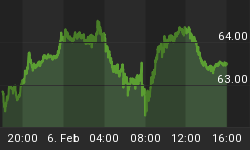For the last several decades, emerging markets have been the fad for business and investing. During that time, little was heard of US industry, which sat mostly on the back burner, away from the limelight. All we heard about was the new global economy and the world's increasing flatness. American businesses began outsourcing production, then back-office administration, and even some engineering capabilities (typically considered our advantage over other, less-developed countries).
Now, after years of increasing momentum, attention, and investment, the emerging markets wave is finally coming dying down. Why? Quite simply, the world has changed. For example, while China was the long-time leader in cheap manufacturing, it recently lost that title to India and Mexico, according to a May, 2009 article from Industry Week (China Loses Low-Cost Manufacturing to India, Mexico, Agence France-Presse).
In fact, that same article cites a study from AlixPartners which revealed that, at the time, the cost of manufacturing a car in a Chinese plant was just 6% lower than its American counterpart. Moreover, recent stories abound of companies finding out the hard way that there are still difficulties in sending business overseas, and not just from a logistics standpoint.
Almost a year ago we observed that companies like Farouk Systems had to incur significant expenses month after month in their ongoing battle to prevent knock-off versions of their own products being produced in China right alongside their legitimate goods (Recovery in the Making, Danger Still Abounds). The same article reference Carlisle Wheel and Tire as one of many companies that have had major problems controlling the quality of offshore production.
What all this indicates is that the long-time trend of outsourcing is, as we've written before, most likely coming to an end. In fact, the flow of production may be getting ready to reverse course and actually start flowing back into the United States. This would be admittedly a very subtle, long-term trend that may not garner any significant attention for years.
The real underlying principle here is that everything in the world of business, economics, politics, et al, and hence, everything that has implications in the investment world, cycles. Some cycles are certainly longer than others. One example of a shorter term pattern comes from the old saying popular among traders, "Sell in May and go away," which refers to the stock market's natural tendency to slow down over the summer (which is very apparent at present) and for trading to traditionally pick back up again in the fall.
Just as market activity and trading volume cycle, so too do economics, including everything from inflation and interest rates to government spending and consumer confidence. All these things cycle, albeit with varying lengths, severities, and implications.
This idea that everything cycles is, consequently, one of our key arguments for why investors need to take an active approach to portfolio management. For those who want to do it themselves, this means the commitment of sufficient time to the study the economies and markets so that they are perpetually updating their holdings based on a changing economic environment.
For those who do not wish to dedicate the time, energy, and focus to this continual (and sometimes mundane) task, the consequence is that they need to look for (and hopefully find) an asset manager who is willing to do this work for them.
While such services certainly aren't free, they are an absolute necessity for investors unwilling to do the legwork themselves. I'm sorry to say, but investing is no easy task. American's access to financial markets and instruments make our country one of the greatest one the world. It's important to understand that this does not in any way entitle us to a free lunch.















